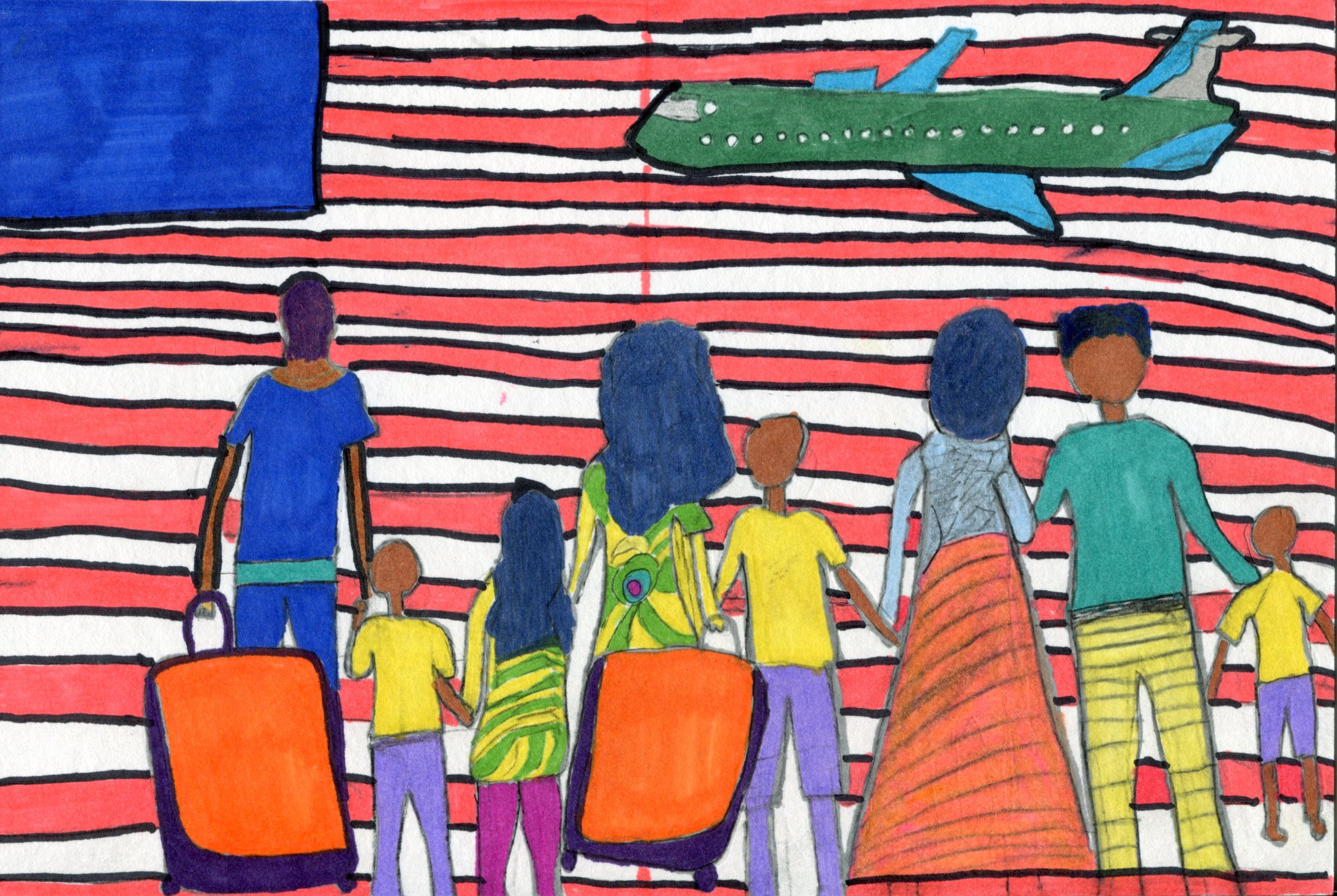Final Report from OHIA’s Multi-Year Research Project
“I thought America was better than this. I thought America was a country that respects human rights,” said a Black immigrant interviewed for the Ohio Immigrant Alliance’s new report, “Behind Closed Doors: Black Migrants and the Hidden Injustices of U.S. Immigration Courts.” Authored by Dr. Nana Afua Y. Brantuo, PhD, “Behind Closed Doors” is the capstone paper from a multi-year research series about Black people’s experiences in U.S. immigration courts.
The report comes at a time when more people are paying attention to the lack of fairness in the U.S. immigration courts, with the disappearances of individuals to a torture camp in El Salvador and immigration jails in Louisiana. Rather than functioning as an independent judiciary, the work of the U.S. immigration courts is directed by the Executive Branch. Immigration judges are instructed to implement political ideologies, rather than observing impartial standards inherent in most court systems across the United States.
The Ohio Immigrant Alliance report offers insight from interviews with fifteen Black immigrants and nine immigration attorneys who have direct experience in the U.S. immigration courts, as well as federal government data. It highlights trends in Black migrants’ experiences, including the government’s confident reliance on unfounded fraud narratives; uneven and impossible evidentiary standards; and the legal representation gap — among other design flaws — as well as recommendations for a more just system.
“Despite qualifying for asylum or other forms of immigration status under the law, Black migrants are repeatedly failed by a system that was not designed to protect them. The U.S. immigration courts offer the illusion of justice, nothing more,” said Demba Ndiath, Advocacy Director of the Ohio Immigrant Alliance (OHIA), who has accompanied many Black immigrants with cases in the U.S. immigration courts.
Ndiath and Maryam Sy, OHIA’s Organizing Director, helped “Behind Closed Doors” researchers interview immigrants for this report in a language of fluency. Separately, Sy interviewed 255 people for “Broken Hope: Deportation and the Road Home,” a book published by the Ohio Immigrant Alliance and Suma Setty with the Center for Law and Social Policy.
After interviewing hundreds of migrants who had been through immigration court, detention, and deportation, said Sy, “These stories really stayed with me for months. Black immigrants opened up about their immigration journey and how their hopes and dreams were shattered. Their pain, their strength, everything they’ve been through. It’s not just paperwork or court dates, these are real people, and they deserve to be treated with basic dignity and fairness. I hope that this report brings awareness and shifts the narrative and the perception many have about Black Immigrants. I hope it informs policy makers and advocates about the past and present struggles of Black Immigrants in the United States.”
Continued Ndiath, “Many immigrants come to the United States with dreams, resilience, and a desire to contribute to the communities they join. Their experiences, shared in this report, are a reminder that our immigration system must reflect the values of fairness and justice. We must build a system that sees their humanity and recognizes the positive impact immigrants make across this country.”
Read the complete report and Executive Summaries here, or listen to audio summaries in English, French, Fulani, Wolof, and Spanish.
Additional Reading
This is the sixth and final installment in the Ohio Immigrant Alliance series, “Behind Closed Doors: Black Migrants and the Hidden Injustices of US Immigration Courts.” Read each report in the series here.
The Cleveland Immigration Court Monitoring Project’s report, “Bearing Witness,” documents a major lack of fairness and due process at the Cleveland Immigration Court during the first Trump administration, based on hundreds of hearings.
For further discussion about racism in immigration law, policy, and structures, as well as firsthand accounts from immigrants who have been through the system, read or listen to “Broken Hope: Deportation and the Road Home” by Lynn Tramonte of OHIA and Suma Setty of the Center for Law and Social Policy, with research by Maryam Sy.

